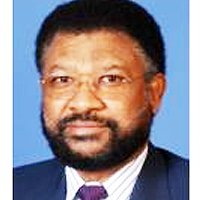Abstract
Mini Review
Pain and culture - on cultural communications of suffering
Lisbeth Sachs*
Published: 29 November, 2022 | Volume 7 - Issue 4 | Pages: 028-032
The impact of culture on the communication of pain becomes visible in a comparative perspective when individuals with two different cultures meet.
Regardless of the physiological cause, it is through lived experience, in social life, that it is decided how, where, when and for whom pain is to be communicated. Age and gender, situation and context as well as the type of pain are essential ingredients in communication. The communication is always adapted to expectations from those present, their own experiences of pain and the specific circumstances, the cause of the pain. The impact of culture on the communication of pain becomes visible in a comparative perspective when individuals with two different cultures meet.
Read Full Article HTML DOI: 10.29328/journal.jsmt.1001060 Cite this Article Read Full Article PDF
Keywords:
Pain; Culture; Communication
References
- Sachs L. Evil eye or bacteria: Turkish migrant women and Swedish health care. Stockholm: Stockholm Studies in Social Anthropology. 1983; 12.
- Kleinman A, Das V, Lock M, editors. Social suffering. University of California Press; 1997.
- Obeyesekere G. The work of culture: symbolic transformation in psychoanalysis and anthropology. Chicago: University of Chicago Press; 1990.
- Marcus EG, Fischer MM. Anthropology as cultural critique. Chicago: University of Chicago Press; 1986.
- Good MD, Brodwin P, Good BJ, Kleinman A. Pain as human experience: an anthropological perspective. Berkeley: University of California Press; 1990.
- Sachs L. Knowledge of no return--getting and giving information about genetic risk. Acta Oncol. 1999;38(6):735-41. doi: 10.1080/028418699432888. PMID: 10522763.
- Adelswärd V, Sachs L. Framtida skuggor: samtal om risk, prevention och den genetiska familjen. (Future shaddows: talks on risk, prevention and the genetic family) Lund:Arkiv förlag; 2002.
- Broom DH, Woodward RV. Medicalisation reconsidered: toward a collaborative approach to care. Soc of Health and Illness 1996; 18:357-78.
- Finkler K. Physicians at work, patients in pain: biomedical practice and patient response in Mexico. Boulder: Westview Press; 1991.
- Sachs L. Sjukdom som oordning. (The disorder of Sickness) Stockholm: Gedin Publishers. 1996.
- Hyden LC, Sachs L. Suffering, hope and diagnosis: on the negotiation of chronic fatigue syndrome. Health. 1998; 2:175-93.
- Jackson J. Chronic pain and the tension between the body as subject and object. In:Csordas TJ, editor. Embodiment and experience: the existential ground of culture and self. Cambridge: Cambridge University Press. 1994. 201-28.
- Kleinman A. The illness narratives: suffering, healing, and the human condition. New York: Basic Books. 1988.
- Kleinman A. Social origins of distress and disease: neurasthenia, depression and pain in modern China. New Haven: Yale University Press. 1996.
- Lin T. Neurasthenia and depression: a study of somatization and culture in China. Culture, Med and Psych. 1989; 6:117-89.
- Wessely S. Old wine in new bottles: neurasthenia and 'ME'. Psychol Med. 1990 Feb;20(1):35-53. doi: 10.1017/s0033291700013210. PMID: 2181519.
- Sachs L. From a lived body to a medicalized body: diagnostic transformation and chronic fatigue syndrome. Med Anthropol. 2001;19(4):299-317. doi: 10.1080/01459740.2001.9966180. PMID: 11800317.
- Sachs L, Evengård B. Speciell patient-läkarrelation vid kroniskt trötthetssyndrom. Antropolog och läkare söker ny kontaktmodell [The special physician-patient relation in connection to chronic fatigue syndrome. Anthropologists and physicians search for a new contact-model]. Lakartidningen. 2000 Jan 19;97(3):176-8, 181. Swedish. PMID: 10687348.
- Ware NC. Suffering and the Social Construction of Illness: The Delegitimation of Illness Experience in Chronic Fatigue Syndrome. Med Anth Q. 1992; 6:347-361.
- Ware NC, Kleinman A. Culture and somatic experience: the social course of illness in neurasthenia and chronic fatigue syndrome. Psychosom Med. 1992 Sep-Oct;54(5):546-60. doi: 10.1097/00006842-199209000-00003. PMID: 1438658.
- Ware NC, Kleinman A. Depression in Neurasthenia and Chronic Fatigue Syndrome. Psych Ann. 1992; 22:202-08.
Figures:
Similar Articles
-
The Utility of Acupuncture in Sports Medicine: A Review of the Recent LiteratureMichael Malone*. The Utility of Acupuncture in Sports Medicine: A Review of the Recent Literature. . 2017 doi: 10.29328/journal.jsmt.1001004; 2: 020-027
-
An Unusual Cause of Anterolateral Ankle Pain and SnappingVasileios Triantafyllis*,Roshin Thomas. An Unusual Cause of Anterolateral Ankle Pain and Snapping. . 2017 doi: 10.29328/journal.jsmt.1001005; 2: 028-031
-
Characterisation of Delayed Onset of Muscle Soreness (DOMS) in the hand, wrist and forearm using a finger dynamometer: A pilot studyGareth Jones*,Kristina Grancharska,Mark I Johnson. Characterisation of Delayed Onset of Muscle Soreness (DOMS) in the hand, wrist and forearm using a finger dynamometer: A pilot study. . 2017 doi: 10.29328/journal.jsmt.1001011; 2: 074-080
-
Vertebral pain syndrome and physical performance assessing in older women with vertebral fracturesGrygorieva Nataliia*, Povorozyuk Vladyslav,Rybina Olena. Vertebral pain syndrome and physical performance assessing in older women with vertebral fractures. . 2017 doi: 10.29328/journal.jsmt.1001015; 2: 109-117
-
Ultrasound conjugated with Laser Therapy in treatment of osteoarthritis: A case studyAna Elisa Serafim Jorge,Michele Luise de Souza Simão,Ana Carolina Fernades,Aline Chiari,Antonio Eduardo de Aquino Junior*,Anderson Luis Zanchin,Vanderlei Salvador Bagnato. Ultrasound conjugated with Laser Therapy in treatment of osteoarthritis: A case study. . 2018 doi: 10.29328/journal.jsmt.1001023; 3: 024-027
-
Chondrogenic re-differentiation potential of chondrocytes after monolayer culture: Comparison between osteoarthritis and young adult patientsKazuki Oishi*,Shusa Ohshika,Ken-Ichi Frukawa,Eiichi Tsuda,Yuji Yamamoto,Yasuyuki Ishibashi. Chondrogenic re-differentiation potential of chondrocytes after monolayer culture: Comparison between osteoarthritis and young adult patients. . 2019 doi: 10.29328/journal.jsmt.1001038; 4: 016-023
-
The science of enduring pain. What can athletes and chronic pain patients learn from each other?Michael G Serpell*. The science of enduring pain. What can athletes and chronic pain patients learn from each other?. . 2019 doi: 10.29328/journal.jsmt.1001041; 4: 043-045
-
Triathlon challenge – from craggy to crazzy a different kind of pain management programMichael G Serpell*. Triathlon challenge – from craggy to crazzy a different kind of pain management program. . 2019 doi: 10.29328/journal.jsmt.1001043; 4: 050-052
-
Analysis of static, dynamic, and pelvic stability in junior badminton players of South AsiaManan Vora*,Digpal Ranawat,Apoorva Tiwari,Manit Arora. Analysis of static, dynamic, and pelvic stability in junior badminton players of South Asia. . 2018 doi: 10.29328/journal.jsmt.1001031; 3: 080-088
-
Role of physical activity in cancer survival and recurrence: A narrative review from relationship evidence to crucial research perspectivesJ Maury,P Senesse,G Ninot*. Role of physical activity in cancer survival and recurrence: A narrative review from relationship evidence to crucial research perspectives. . 2018 doi: 10.29328/journal.jsmt.1001034; 3: 102-117
Recently Viewed
-
Trends in TeledentistryRudrakshi C*. Trends in Teledentistry. J Clin Adv Dent. 2020: doi: 10.29328/journal.jcad.1001014; 4: 004-005
-
Au26-35: A Special Geometrical Structure of Au33 (D2) Cluster with Highly Occupied - 14 Pairs of Double-State DegeneracyK Vishwanathan*. Au26-35: A Special Geometrical Structure of Au33 (D2) Cluster with Highly Occupied - 14 Pairs of Double-State Degeneracy. Ann Adv Chem. 2022: doi: 10.29328/journal.aac.1001035; 6: 063-080
-
Texture of Thin Films of Aluminum Nitride Produced by Magnetron SputteringStrunin Vladimir Ivanovich,Baranova Larisa Vasilievna*,Baisova Bibigul Tulegenovna. Texture of Thin Films of Aluminum Nitride Produced by Magnetron Sputtering. Int J Phys Res Appl. 2025: doi: 10.29328/journal.ijpra.1001106; 8: 013-016
-
Minimising Carbon Footprint in Anaesthesia PracticeNisha Gandhi and Abinav Sarvesh SPS*. Minimising Carbon Footprint in Anaesthesia Practice. Int J Clin Anesth Res. 2024: doi: 10.29328/journal.ijcar.1001025; 8: 005-007
-
On Friedman equation, quadratic laws and the geometry of our universeS Kalimuthu*. On Friedman equation, quadratic laws and the geometry of our universe. Int J Phys Res Appl. 2021: doi: 10.29328/journal.ijpra.1001041; 4: 048-050
Most Viewed
-
Evaluation of Biostimulants Based on Recovered Protein Hydrolysates from Animal By-products as Plant Growth EnhancersH Pérez-Aguilar*, M Lacruz-Asaro, F Arán-Ais. Evaluation of Biostimulants Based on Recovered Protein Hydrolysates from Animal By-products as Plant Growth Enhancers. J Plant Sci Phytopathol. 2023 doi: 10.29328/journal.jpsp.1001104; 7: 042-047
-
Sinonasal Myxoma Extending into the Orbit in a 4-Year Old: A Case PresentationJulian A Purrinos*, Ramzi Younis. Sinonasal Myxoma Extending into the Orbit in a 4-Year Old: A Case Presentation. Arch Case Rep. 2024 doi: 10.29328/journal.acr.1001099; 8: 075-077
-
Feasibility study of magnetic sensing for detecting single-neuron action potentialsDenis Tonini,Kai Wu,Renata Saha,Jian-Ping Wang*. Feasibility study of magnetic sensing for detecting single-neuron action potentials. Ann Biomed Sci Eng. 2022 doi: 10.29328/journal.abse.1001018; 6: 019-029
-
Pediatric Dysgerminoma: Unveiling a Rare Ovarian TumorFaten Limaiem*, Khalil Saffar, Ahmed Halouani. Pediatric Dysgerminoma: Unveiling a Rare Ovarian Tumor. Arch Case Rep. 2024 doi: 10.29328/journal.acr.1001087; 8: 010-013
-
Physical activity can change the physiological and psychological circumstances during COVID-19 pandemic: A narrative reviewKhashayar Maroufi*. Physical activity can change the physiological and psychological circumstances during COVID-19 pandemic: A narrative review. J Sports Med Ther. 2021 doi: 10.29328/journal.jsmt.1001051; 6: 001-007

HSPI: We're glad you're here. Please click "create a new Query" if you are a new visitor to our website and need further information from us.
If you are already a member of our network and need to keep track of any developments regarding a question you have already submitted, click "take me to my Query."













































































































































